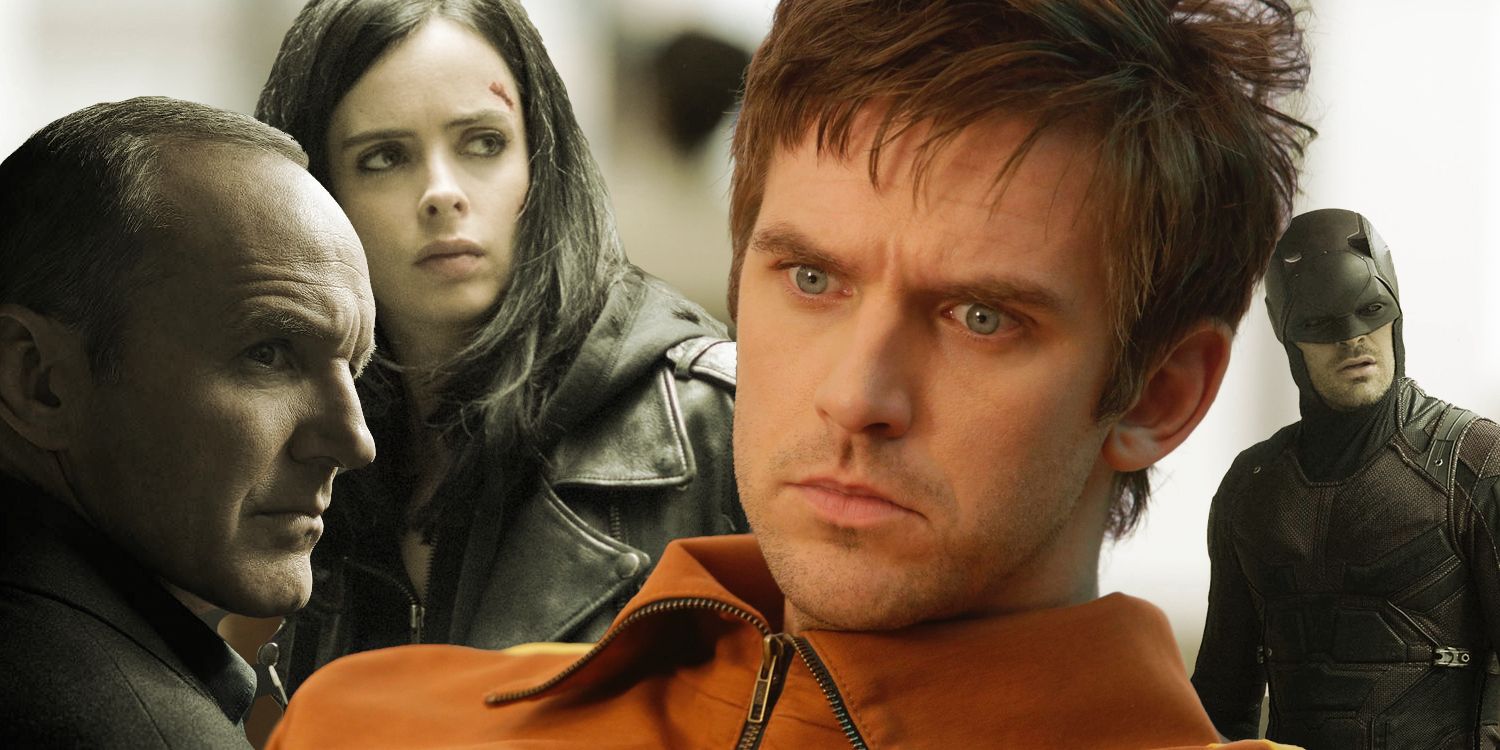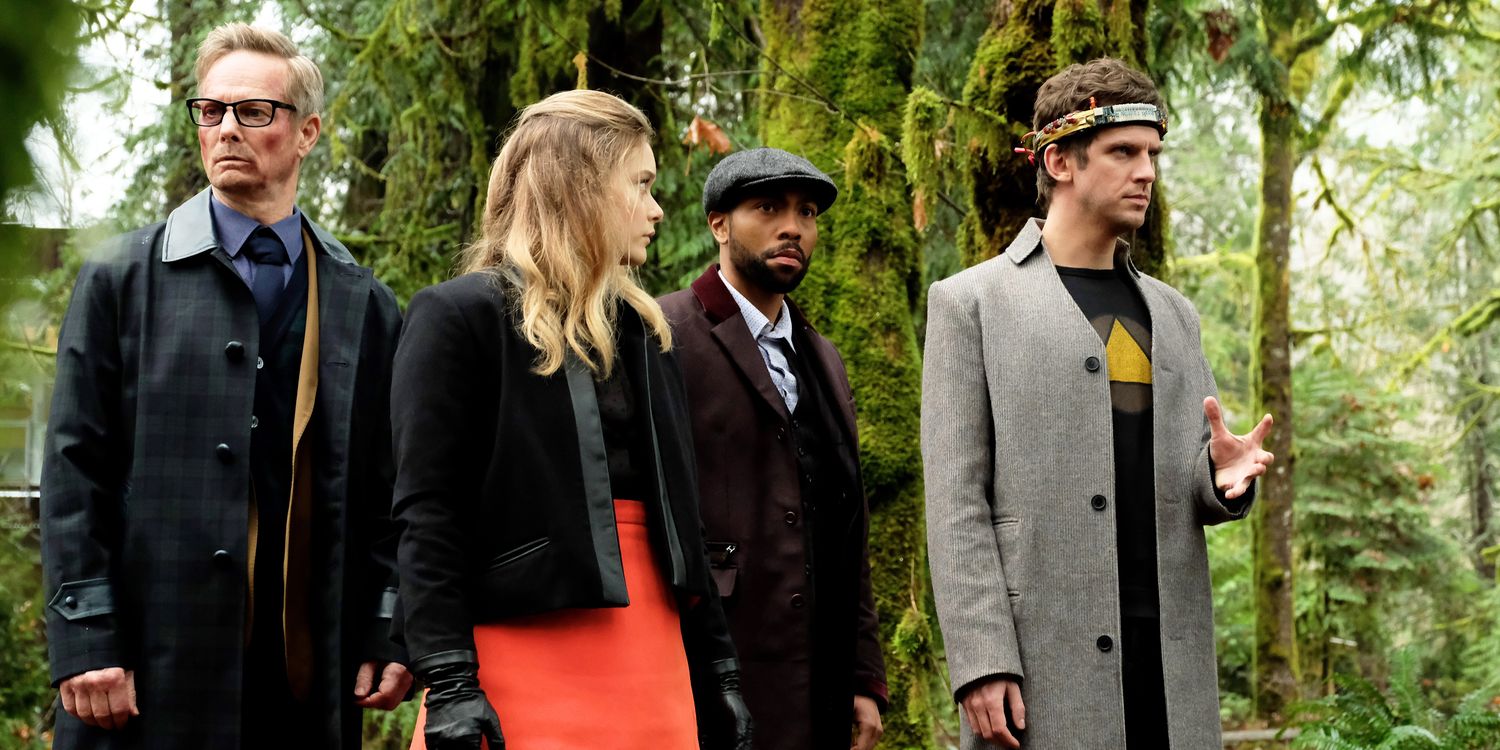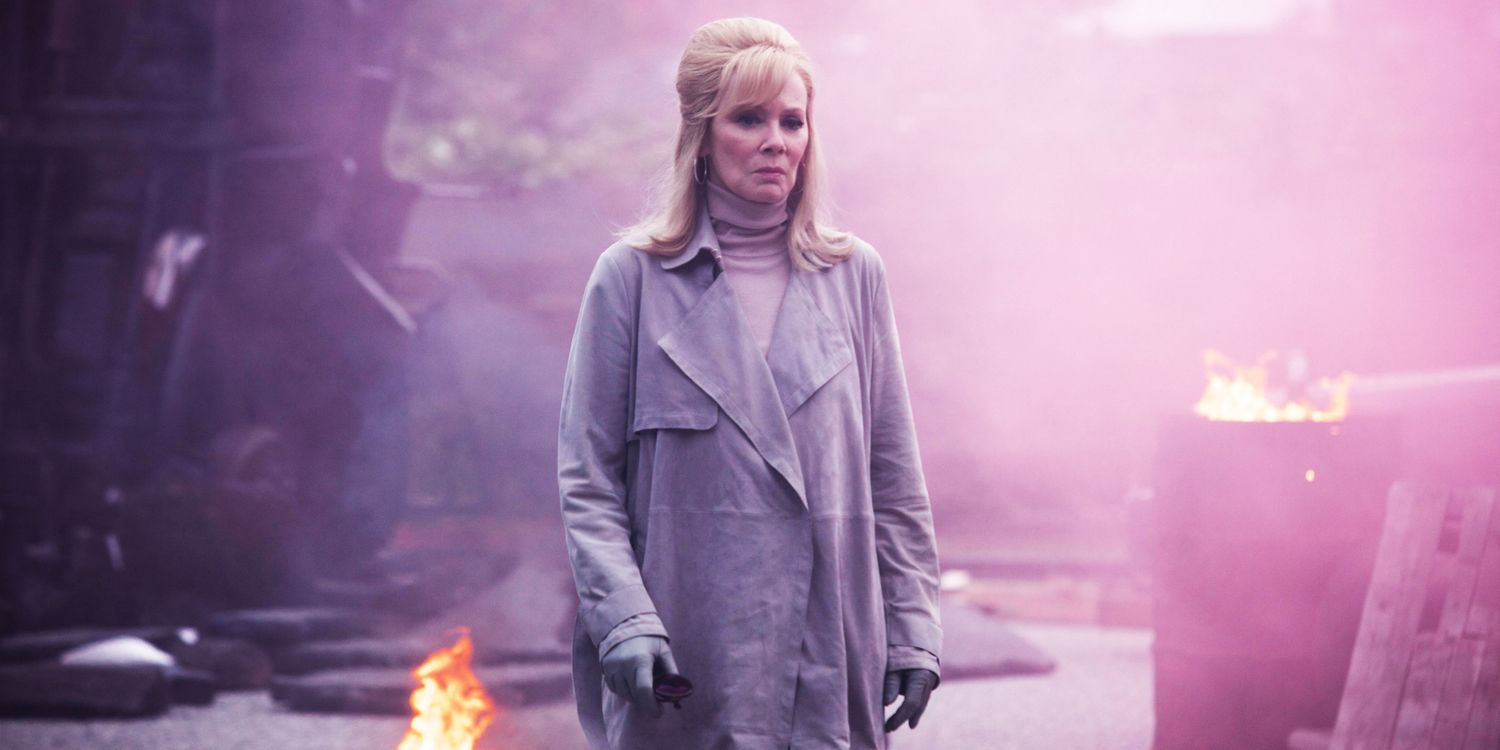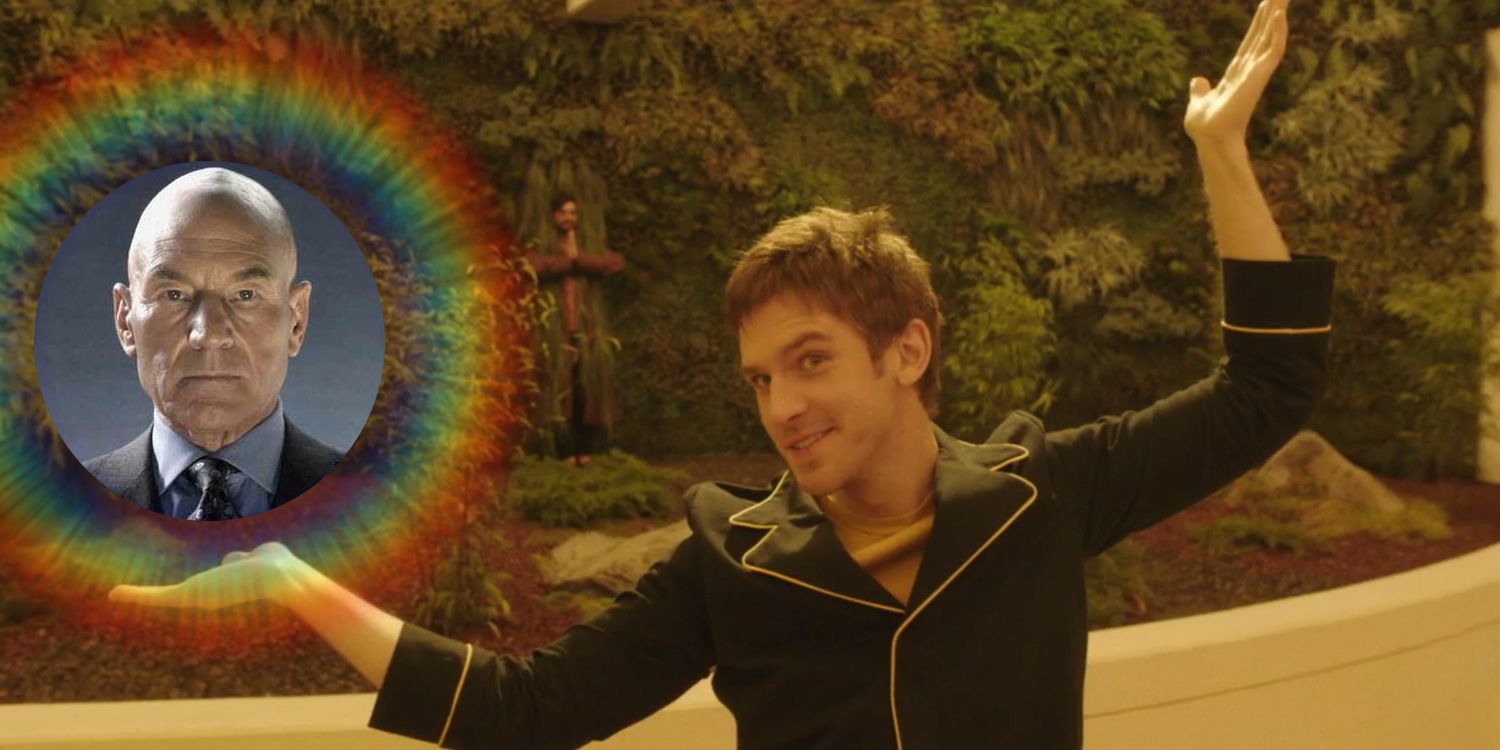When season 1 of FX's Legion came to an end, it closed out one of the most exhilarating and creative runs for comic book television in quite some time. The X-Men-adjacent series was a stylish endeavor to say the least, a showcase for creator Noah Hawley's growing brand of eccentric storytelling that somehow managed to embrace its comic book origins while at the same time keep it at arm's length with some confounding storytelling and provocative visuals.
The season finale was a different story. 'Chapter 8' threw more than one nod to the Marvel way of doing things, perhaps most explicitly by adding a mid-credits scene that teased where the story was headed in season 2. Like Legion's protagonist David Haller, the credits scene was of two minds – both serving a function fans have come to expect from the cinematic efforts of both Marvel and DC, and being as weird and confounding as the series was throughout much of its first season. But while the series has demonstrated an understanding of the Marvel formula, there's plenty the House of Ideas can learn from Legion, especially in the television department.
Here's what Marvel TV can take away from Legion season 1:
Shorter Seasons
Aside from the co-produced Legion, all of Marvel's television properties have one thing in common: their seasons are too long. Agents of S.H.I.E.L.D., Daredevil, Jessica Jones, Luke Cage, and, most recently, Iron Fist all suffer from episode counts that impact the season's narrative in different ways. Marvel's Netflix series could all stand to lose an episode or two (or six) in an effort to tell a more concise story and avoid the curse of what's been referred to as "streaming drift" – or when a series intended to be binge-watched noticeably sags in the middle.
Though its episode count is higher, S.H.I.E.L.D. is perhaps less susceptible to the midseason drift of its streaming counterparts because it plays out on a week-to-week basis, and is able to course correct and recharge its creative batteries by going on hiatus two or more times a season. Additionally, S.H.I.E.L.D. still treats most of its episodes as episodes, rather than segments in a 13-hour movie. The Avengers offshoot isn't immune to aimless wanderings, however, filling nearly double the amount of time as its Netflix neighbors means more filler and less killer, an issue the series has tried to mitigate by breaking the season into "pods" resulting in a series of shorter, more focused storylines, like Ghost Rider, LMDs, and now the Framework.
Marvel is approaching two of its upcoming series, The Defenders and Inhumans, by handing them shorter seasons, but it's not necessarily a response to the way their other series tend to drag; it's that both are intended to be miniseries events, made notable by their sizeable casts and productions which, presumably, have the budget to match. Still, it's a step in the right direction that Marvel Television, ABC, and Netflix recognize these projects need not be a one-size-fits-all approach, something that could be explored in future seasons of Daredevil, Jessica Jones, et al.
What's interesting is that Legion isn't immune to the abovementioned problems. Clocking in at a reasonable eight episodes, season 1 still had issues with pacing, and would have benefitted from dropping an hour or maybe even two ('Chapter 6' could easily lift out with little to no impact on the overall narrative). That makes Hawley's recent statement that season 2 will jump to 10 episodes reason for slight concern. Though with only a hint of what is to come in season 2, and the promise of Jemaine Clement and Aubrey Plaza on a road trip, Legion may find itself putting those two hours to good use.
Make it Look Like a Comic Book
Legion not only made good on its blend of hallucinogenic visuals, stylish costumes, and brilliant set design, it did so in a way that was of a piece with how those elements came together to tell a story. The series may have shirked much of what makes a comic book movie or television series define itself as such, but its obsessive consideration to visuals from one scene to the next made Legion the closest thing to a live-action comic book since, perhaps, Ang Lee's Hulk.
The series makes good use of its deliberate and unique aesthetic, but it is, admittedly, not appropriate for every show, nor does it lend itself to the gritty street-level design of Marvel's Netflix series or the airier visuals of something like Agents of S.H.I.E.L.D. But it does prove a point about Marvel's TV shows (and its feature films): the shared color palettes, camera angles, and filmmaking techniques tend to make them indistinguishable from one another. While this serves a purpose in terms of creating a universe that feels connected, and allows characters to flow seamlessly from one movie or show to the next, it confines the story within a strict set of boundaries that limit the potential for more creative storytelling.
Compare the two most recent television offerings associated with Marvel, Legion and Iron Fist, and the differences are striking. Legion is teaming with vivid colors and every shot feels considered as much for how striking it will look as for what it intends to say about the characters and their respective situations. Conversely, like its protagonist, Iron Fist is a largely flavorless offering, eschewing the vibrant colors of its printed inspiration for an aggressively drab palette. The composition is pretty much the same story. Shot mostly at eye-level angles with a mix of close-up and medium shots, Iron Fist is, visually speaking, the antithesis of what FX did with Legion.
Not Everything Has to be Connected
The term X-Men adjacent has been a blessing for Legion. The series is somewhat nebulously a part of Fox's larger cinematic X-Men universe, giving it the requisite freedom to run around and do its own thing, while tacitly acknowledging there's (maybe) more out there. The season's penultimate episode all but named Professor X as David's biological father, and there are plenty of rumblings about either Patrick Stewart or James McAvoy bringing the character to television at some point in the future. That's all well and good, and should it come to pass, will likely result in an impressive ratings spike, but Legion doesn't need to be directly connected to those movies or its characters.
One of the most refreshing aspects of Legion was its ability to introduce entirely new characters and make the audience care about them. David's love interest Syd is denoted by a set of powers that bear a striking resemblance to those of Rogue, while Oliver Bird is sort of the beat poet version of Charles Xavier. Would the series be strengthened all that much by the presence of characters (and actors) from the movies? The answer is: probably not. Legion is such a singular entity that any attempt to overtly connect the adventures of David Haller and the Summerland Gang to Fox's string of big-budget blockbusters would have a dilutive effect on the show's ability to indulge in its now patented weirdness.
While it's still up in the air whether or not Legion is in its own universe, as producer Lauren Shuler Donner has said, or if it will prove too tantalizing a proposition for the studio not to schedule a play date with the X-Men's cinematic side, season 1 made a strong case for not only this property to exist on its own, but for future comic book series to be given an opportunity to do the same.
Next: Legion: Season 1 Finale & Mid-Credits Sequence Explained
Legion season 1 can be viewed in its entirety on the FXNow app.




